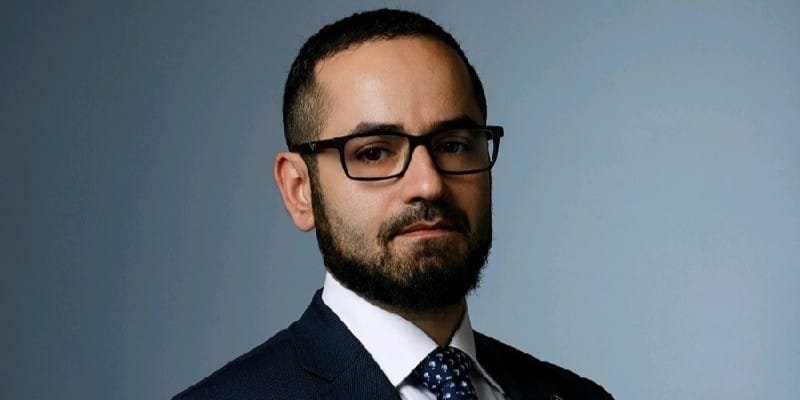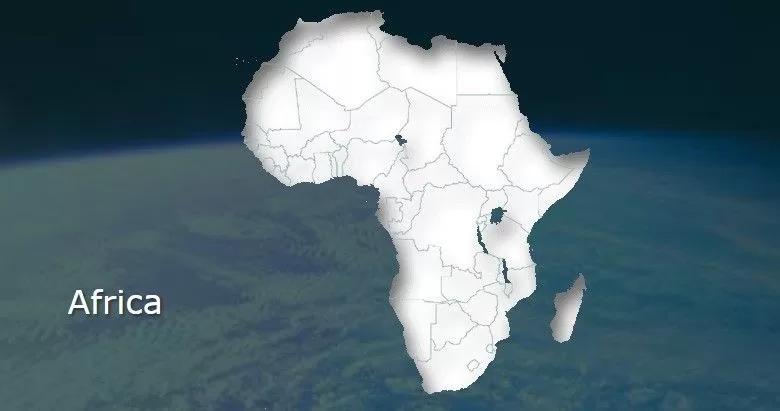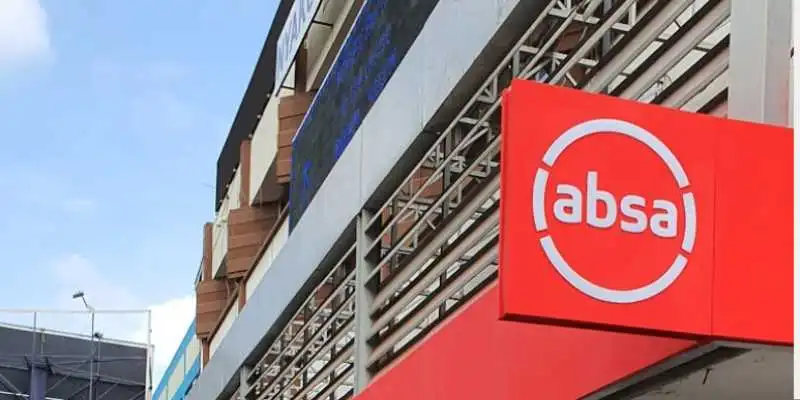The Nigerian government’s decision to withdraw money laundering charges against Tigran Gambaryan, a senior executive at Binance Holdings, has sparked debate over the influence of foreign diplomacy on Nigeria’s judicial process. Gambaryan, a U.S. citizen, had been in detention since February 2024 over his alleged role in a $34.4 million cryptocurrency laundering racket. For any legal and justice system, putting an abrupt end to a high-profile case such as his raises awesome questions and issues related to international politics, justice, and corporate regulation in Nigeria.
The dropping of the charges comes after court cases as well as protests from diplomatic officials from the United States. As two of the biggest issues in the world of cryptocurrencies: money laundering and currency manipulation connected to Binance in Nigeria, Gambaryan’s case gained much attention around the globe. However, a week before the next hearing, a brief, non-announced session had the EFCC withdraw all the charges in what many presumed was due to deal-making in the background. It has caused people to wonder if the Nigerian judiciary was influenced by an entreaty from other international organisations or if the prosecution had no solid ground all along.
Remember that, prior to his arrest, Nigeria banned financial institutions from transacting in cryptocurrency assets in 2021 and warned against using Binance for investing purposes.
A Timeline of the Arrest and Court Battle
The Arrest and Initial Charges
Tigran Gambaryan was arrested in Nigeria at a time when the Nigerian authorities stepped up actions against cryptocurrency operations after a set of regulatory measures depriving the states of illicit funds. In February 2024, within the framework of the case of money laundering and manipulation of the Nigerian naira, the largest global cryptocurrency exchange Binance Holdings, Gambaryan, was arrested in Nigeria by the Economic and Financial Crimes Commission (EFCC).
Binance has been a focus of growing scrutiny globally due to concerns over its compliance with anti-money laundering (AML) regulations and its tax obligations in several jurisdictions. The EFCC, in collaboration with other regulatory bodies, alleged that Binance, through its operations in Nigeria, was involved in illegal transactions that affected the stability of the local currency, the naira, and facilitated money laundering schemes worth over $34 million.
While Binance was facing broader investigations for its cryptocurrency operations, Gambaryan, as one of its senior executives, became a key figure in the Nigerian legal case. In April 2024, Gambaryan was formally arraigned alongside Binance on five counts of money laundering. The EFCC’s allegations painted a picture of a company and its executives exploiting loopholes in Nigeria’s weak financial regulatory system to conduct large-scale, unauthorised currency transactions.
The Battle for Bail and Legal Wrangling
Once Gambaryan was detained, his legal battle began in earnest. His U.S. citizenship complicated the matter, as it raised concerns about the risk of him fleeing the country before the trial was concluded. This concern was further fueled by the escape of his colleague, Nadeem Anjarwalla, another Binance executive, who managed to evade custody in March 2024, just a month after his own arrest. Anjarwalla’s escape had a profound impact on Gambaryan’s case, with the court citing it as a major reason for denying bail to Gambaryan during his first application.
During Gambaryan’s first bail hearing in May of 2024, the court denied it as the agency observed their argument stating that Gambaryan is a flight risk. Compounding the problems were the advancing health issues suspected to be worsening in prison, where his lawyers said he was held at the Kuje Correction Center in Abuja. However, the court dismissed his health issues as a valid reason to grant him bail, averting that NCoS has competent health facilities to treat him with his ailment.
Second Bail Application and Further Rejections
In October 2024, Gambaryan’s legal team made a second attempt to secure his release on bail, this time presenting more detailed arguments about his health condition. However, this application too was rejected. Justice Emeka Nwite, who heard the case, stressed that Gambaryan’s application for bail was an abuse of the process since he continued appealing against the earlier decision of the Nando High Court in the Court of Appeal. According to the judge, Gambaryan’s legal representation failed to provide sufficient evidence to indicate that the correctional facility in question was incapable of meeting his medical needs. Moreover, the defence’s failure to withdraw the earlier appeal further complicated the court’s willingness to consider the new application.
After rejecting the second bail application, Justice Nwite scheduled the next court date for October 18, 2024, for the continuation of the trial. However, Gambaryan’s absence during this hearing delayed proceedings once again, with the court rescheduling for October 25, 2024.
The Diplomatic Lobbying and the Surprise Dismissal
However, the legal fight was not only a Nigerian courtroom affair but behind the scenes as well. As Gambaryan stood trial in the weeks before his court dates, diplomatic negotiations on the part of the U.S. and Nigerian governments began to heat up. According to media sources, U.S. lawmakers and diplomats pressed for his release; they argued that he had been detained for three years without bail, and they believed that the Nigerian legal process was unfair to Hamsa. Political and diplomatic ministries were said to be at this operational diplomatic level, and there were said to be direct appeals to both Nigerian and American governments.
This diplomatic pressure was at its peak in October 2024, when members of the United States Congress wrote letters to Nigerian authorities asking for proper justice for the case. Reports indicated that these meetings were instrumental in the surprising last-minute, private court session on October 23, 2024, closer to the fixed trial session. At this hearing, the lawyer representing the EFCC announced the withdrawal of the charges against Gambaryan, citing the executive’s limited role at Binance and stating that he was merely an employee rather than a decision-maker in the company’s financial activities.
This withdrawal was quite unexpected for many because the overall case of fraud against Gambaryan and Binance had grown very popular in Nigeria as well as observers from other countries. For all practical purposes, the case was dismissed by the court that freed Gambaryan from charges and let her go after months in jail.
The Role of International Diplomacy and the Future of Nigerian Crypto Regulation
The abrupt ending of the case has generated a lot of concerns as to the place of international diplomacy in the Nigerian law courts, especially as far as cases involving foreigners are concerned. Were Gambaryan released because there was no sufficient proof against him, or was it due to pressures from the U.S. diplomats overpowering Nigeria’s sovereignty and legal system? The nondisclosure of the unpublicised hearing adds a layer to the complexity of the motivations for the withdrawal of charges.
This case brings out some of the issues that Nigeria encounters regarding the regulation of the use of cryptocurrencies because of their nature which is decentralized and non-border. This has occurred as Binance has been under probe in several jurisdictions to ascertain its alleged involvement in conducting potentially unlawful deals as one of the largest cryptocurrency exchange platforms globally. For more sophisticated international entities extending operations into Nigeria, where the incidence of financial crimes has become a worrisome subject, the capacity to sanction and prosecute such firms presents a complex challenge of reconciling nationalism and diplomatic diplomacy.
However, Binance is not out of the woods yet, as the company has been separately charged with tax evasion in Nigeria even after releasing Gambaryan. Still, charges withdrawal in the case of Gambaryan can be a sign of changing Nigeria’s future stance on cryptocurrency regulation, including the adoption of more gentle approaches owing to international pressure.
Conclusion: A Precedent for Future Cases?
The story of Tigran Gambaryan represents the depredation of how foreign influence, diplomatic lobbying, and the strength of corporate entities can manoeuvre legal systems in ways that are not very obvious. These questions are left unanswered concerning whether the regulations in the Nigerian environment are stable enough to oversee such a dynamic area of investment. It also provides a precedent for the treatment of foreign nationals, particularly persons of influence, as might be represented by the foreign firms of these parties.
As digital currency advances further and global financial regulation grows more entangled with diplomacy, Gambaryan’s case will likely stand for the critical turning point in Nigeria’s path towards the proper accommodation of justice, diplomacy, and innovation.














